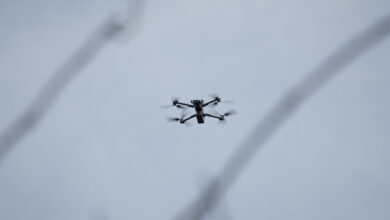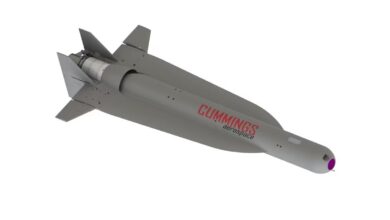Saudi, US Push for Extension of Iran Arms Embargo
US and Saudi officials on Monday called for extending a UN arms embargo on Iran. They warned of major implications for regional security if that didn’t happen. In place since the 2015 nuclear deal with Iran, the embargo expires in October.
Lifting the ban would “embolden” Tehran, US Special Representative for Iran Brian Hook told reporters in Riyadh.
“This is not an outcome that the UN Security Council can accept,” he said at a news conference with Saudi Foreign Minister Adel al-Jubeir.
At the conference venue, Saudi officials displayed remnants of missiles and drones they said Iran had supplied to Yemen’s Huthi rebels. Tehran denies accusations that it arms the Houthis.
“Iran seeks to provide weapons to terrorist groups. What will happen if the embargo is lifted?” Jubeir said. “Iran will become more… aggressive.”
The Houthi rebels have recently targeted several Saudi cities with missile and drone strikes. Earlier this month, a UN report said cruise missiles and drones used in attacks last year on Saudi oil facilities were “of Iranian origin.” The attacks on Saudi state oil giant Aramco’s facilities caused extensive damage and briefly interrupted production of half of the country’s oil output.
Russia, China Likely to Veto Extension
Hook said later in Bahrain that if the arms embargo expired, Iran would be able to acquire deadlier arms.
“It will trigger an arms race in one region that needs it the least,” Hook said on the second leg of his Gulf tour. The American diplomat is on a mission to garner support for extending the embargo.
Bahrain Foreign Minister Abdullatif al-Zayyani expressed his country’s support for extension. He accused Tehran of continuing to supply arms to militias in Lebanon and Iraq as well as in Yemen.
US Secretary of State Mike Pompeo warned last week of a return of UN sanctions on Iran if the Security Council fails to extend the embargo.
Iran agreed with major world powers in 2015 to freeze its nuclear program in return for the lifting of punishing international sanctions. But in 2018, US President Donald Trump pulled out of the agreement and reimposed those measures. In return, Iran rolled back its own commitments.
France, Britain, and Germany, which all still support the nuclear deal, have said they favored extending the embargo. It has so far remained unclear when the Security Council will hold a vote on the embargo’s fate. Likewise, such a vote is also unlikely to pass, as veto-wielding China and Russia have already spoken out against the extension.












